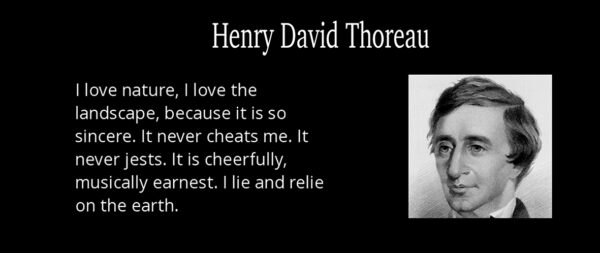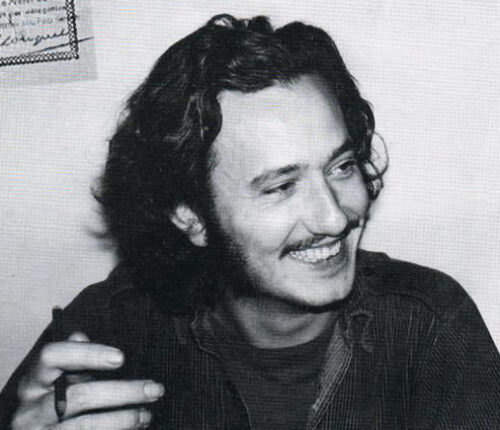Henry David Thoreau.

Henry David Thoreau philosopher, naturalist, writer and poet
He is best known for Walden’s book, A Quest for Simple Living in the Natural Environment, and for his essay Resistance to Civil Government or Civil Disobedience, an argument for disobedience to an unjust state.
Born on July 12, 1817, in Concord, Massachusetts, Henry David Thoreau had retired from his hometown and community for a time to settle on the shores of Lake Walden.
This loner is first and foremost a wonderful poet, who knew how to wonderfully evoke nature and the benefits that man can derive from his fellowship with it. Likewise, he is a subversive philosopher in many ways, refuting the prejudices of his contemporaries, skeptical of the power of law and the state, and denouncing the invasion of consumption and the place occupied by the value of work that he finds urgent to reconsider.
Thoreau left Harvard University with a degree in humanities, but while studying at the university modus vivendi, he did not like this long stay, although didactic. He then remained a teacher for a very short time, as opposed to the corporal punishment he used then. And if he worked in his father’s pencil factory, he used it mainly to keep his diary, which he opened on October 22, 1837, on the advice of Ralph Waldo Emerson, his neighbor at Concord, who had already met at Harvard University. , a « transcendental » philosopher who advocates an approach of man to nature.
In 1846, already settled in the woods, Thoreau refused to pay a poll tax to protest the war in Mexico and slavery, an unpaid $ 6 tax that owed him a night in prison. Sufficient residence to write, two years later, a short text Political Disobedience, which did not claim rebellion but peaceful disobedience.
He would publish Walden in 1854. The profession of self-belief, an ode to nature, this text also contains developments in an already productive society that annihilates what Thoreau considers to be a life truly worth living:
« Most people, even in our relatively free country, out of ignorance or error, are so absorbed in unnecessary worries and the hard and futile effort of their lives that they can not reap the most delicate fruits. Their clumsy, trembling fingers from the overwhelming work became incapable of doing so. In fact, the employee does not have the free time that would allow him to maintain his true daily integrity. He does not have the ability to maintain human-to-human relationships with others, his work would be depreciated in the market. « It does not have time to be anything other than a machine. »
This does not mean that he despises the technical achievements of human labor. Thoreau weaves his remarks with the delicacy of these sinners who develop their riddles in the river and notes in Massachusetts Natural History that « they are no more an invasion than a spider web in the sun. » He adds: « I stop my boat in the middle of the current and sweep the sunny water to observe the nets of its nets and I wonder how the city could make this elf.
The desire for nature and also the desire to leave society, he had already felt during a trip he made with his brother in 1840, canoeing on the rivers Concord and Merrimack. Experience that he will delve into the forest of Concord and from which he will note the daily pleasures that nature offers to man. In his diary – « My diary contains everything about me that would otherwise overflow and be lost: it picks up from the field I collect with my actions » – observes nature, melts into it, and communicates with animals.
It was in July 1845 that Thoreau decided to live on the shores of Lake Walden, in a wooden cabin:
« I wanted to leave to live near the lake and when my friends did not ask me for a better reason than to want to hear the wind whispering among the reeds. »
